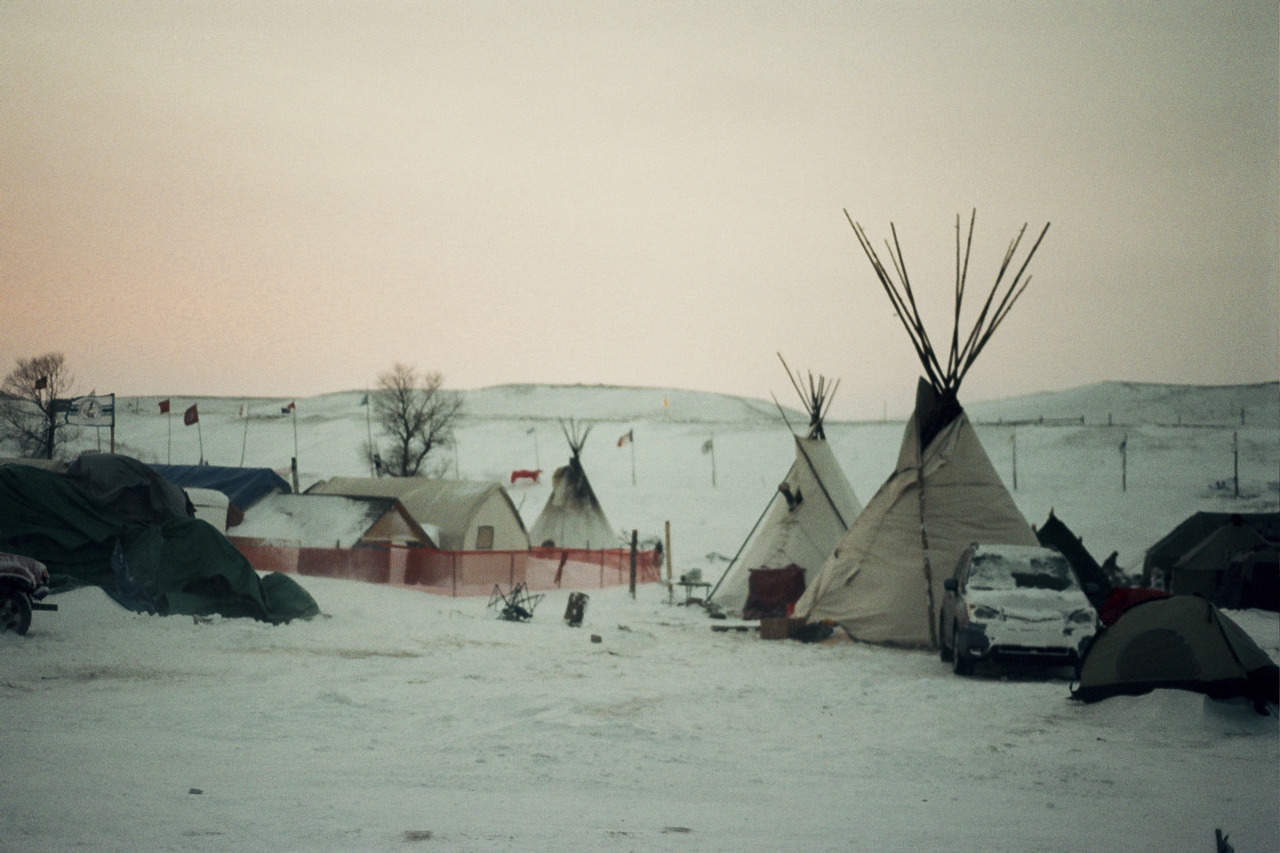Interview 068 • Jul 16th 2018
- Interview by Lou Noble, Portraits of Molly Steele by Aaron Feaver
About Molly Steele
Molly Steele is a Los Angeles-based analog photographer whose work highlights intimacy, nature and alternative lifestyles outside of commercial society
Links
Foreword
Molly Steele is comprised of many different facets, and we found her to be both everything and nothing of what we expected at first glance. After setting out on the opportunity of a lifetime riding the rails across America, she has produced increasingly poignant work of the landscapes and people she has encountered through her travels as she flows between her various selves.
This interview has been edited for clarity and content.
Interview
Ready?
Let’s ruin my career!
Ha! How often are you shooting, these days?
If I’m in LA, I’m maybe shooting five photos a month on my film camera. Sometimes a lot more…I mean, I’ve gone through three rolls this past week just trying new things. I went to a couple shows, I brought out a point and shoot and shot flash, which is super-rare for me, but it’s usually when I’m traveling that I get into a flow of shooting things. I’ve been here so long that I don’t really…this is the type of place where I see something I want to take a picture of and keep driving.
Why?
Or I’ll think, oh I’ll come back here at this time of day with this light another time.
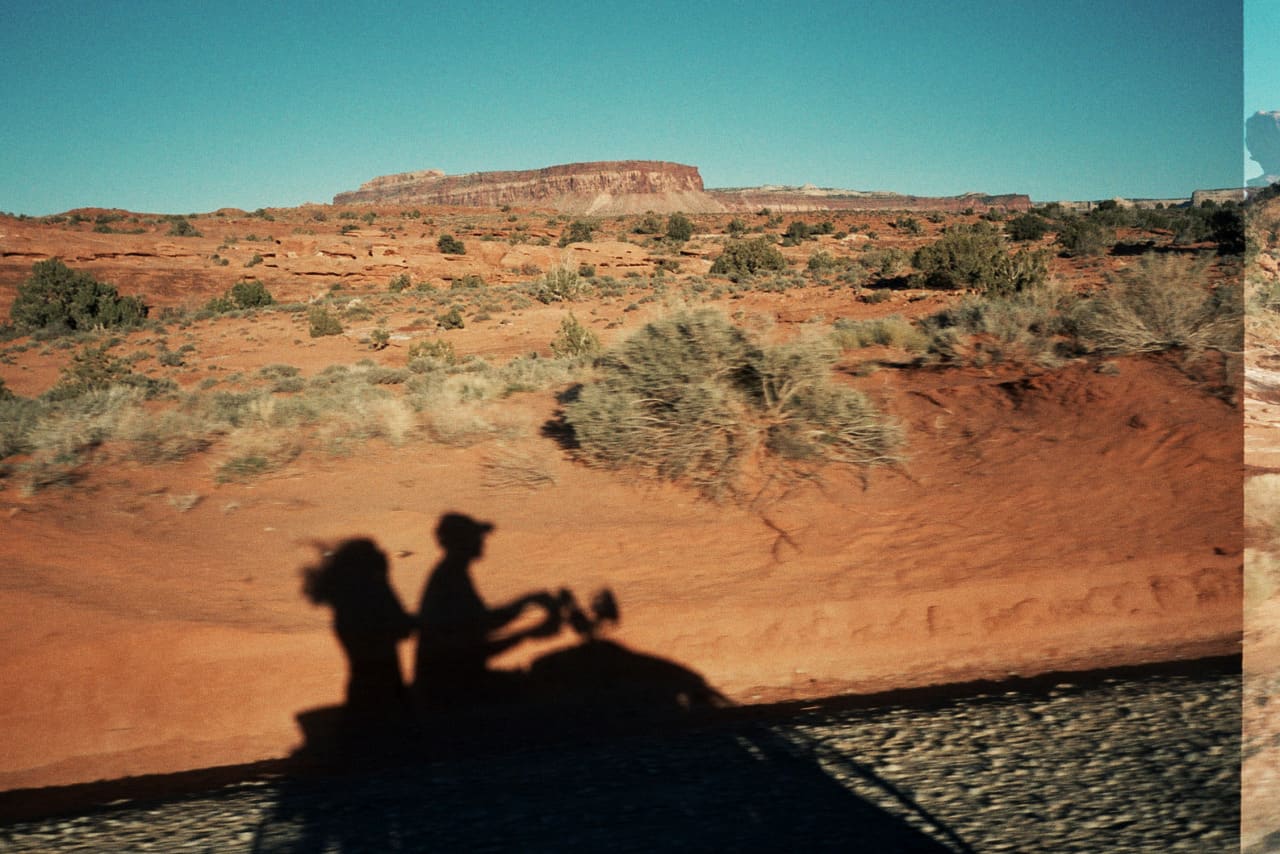
You live here, so you can come back whenever you want.
I rarely end up doing that. Like, two days ago I was in a Lyft going downtown and the light was so beautiful on this house that I’ve never noticed on the 101 South that I drive almost every day, and it must have been the light that was making me notice it and so I thought, “okay, I’ll go back there next time it looks like this.” I guess just working on editing my things to be more reflective of the path that I want to be on, not just sharing casually as an amateur photographer.
Right. You’ve said previously, photography isn’t quite enough?
Yeah.
What would be enough?
Photos and writing. And photos that are really geared toward some, not storytelling, but some sort of sharing of a message or something, not just a beautiful photo. A lot of people that I look up to are photojournalists who would go and immerse themselves in a community or a place for a long period of time, and I think that even without writing that shares something more than a photo. And then there are people who are great at just taking an amazing picture, whether they even try or not. I’m not really sure what that’s going to lead to but I like school, I like learning, I like reading, and I want to find a way to bring that into photography, for myself.
When did you first consider yourself a professional photographer?
Three or four years ago?
How long had you been shooting before that?
I probably, I guess I’ve been shooting eleven years total, so I don’t know, like eight years?
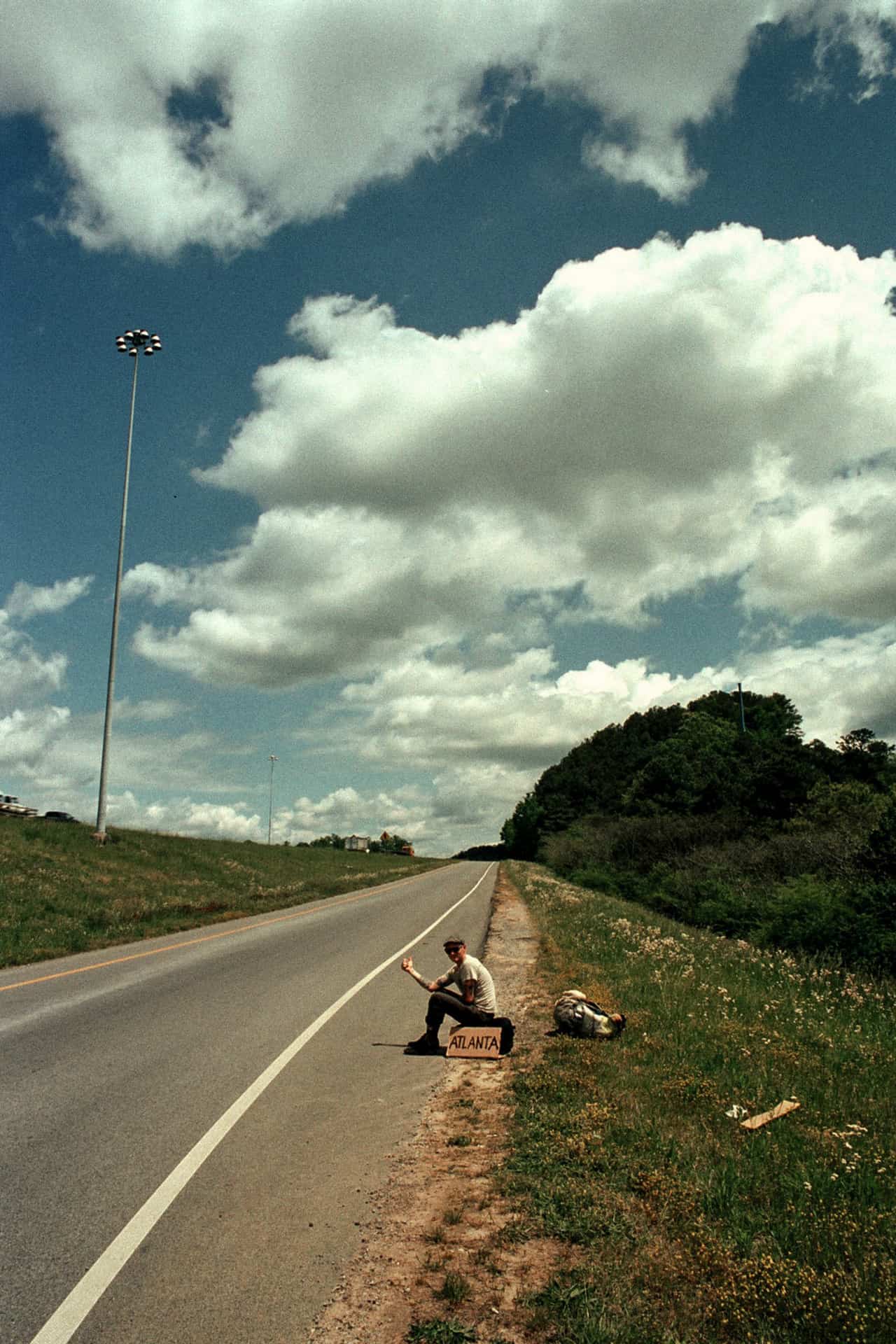
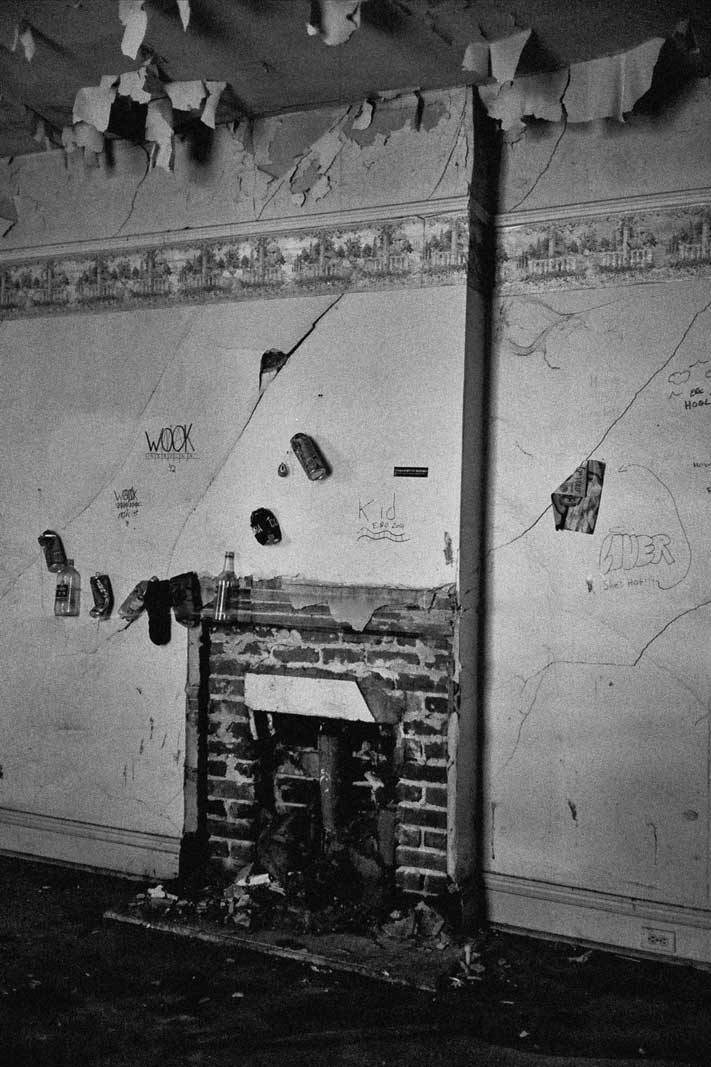
What was it that let you know that things had changed?
I still wasn’t good yet and I still didn’t know what I was doing, but I had an opportunity to go on a trip about four years ago that I knew was going to have a lot of really beautiful things to shoot that only I had access to and my friend that I went with, and so I thought, “well okay, in order to do this trip in the first place I have to drop out of college, I have to quit three jobs, and I have to live out of my backpack for an indefinite amount of time, and I need to be able to take good photos.” And I shot maybe less than 10 rolls.
On the trip?
Yeah, because I wasn’t really…I wasn’t quite a photographer yet, but I knew that that trip was going to make it for me. And it did. There wasn’t necessarily a ton of big/successful/notable moments out of it, but it was a moment for me to really feel like that’s what I wanted to do, because I was just put into such unique situations that I felt passionately about, on a personal level, not just photographic.
What was it about that opportunity that was like, “oh yeah, I’ll just drop out of school and quit all these jobs?”
Well, at that point I’d been in full time college for four years and was working full time at three jobs.
So you were almost done with college.
Well I wasn’t working toward a degree, but I could have been, eventually, haha! But I just had no time to think for myself, even in school, I loved what I was studying, but I’d go home and I’d only have enough time to get my homework done, I wouldn’t have enough time to have an idea and follow that through, or really study independently and take it to something that was uniquely mine.
So when I had this opportunity to travel, it was more because I was sad and I needed to get out of town and I needed to not have a schedule and not have a ton of responsibilities. It was also supposed to be the first time I ever road trains and stayed in squats and whatnot, so I just didn’t want to miss the opportunity, even for just myself. And then the camera was just a side thing.
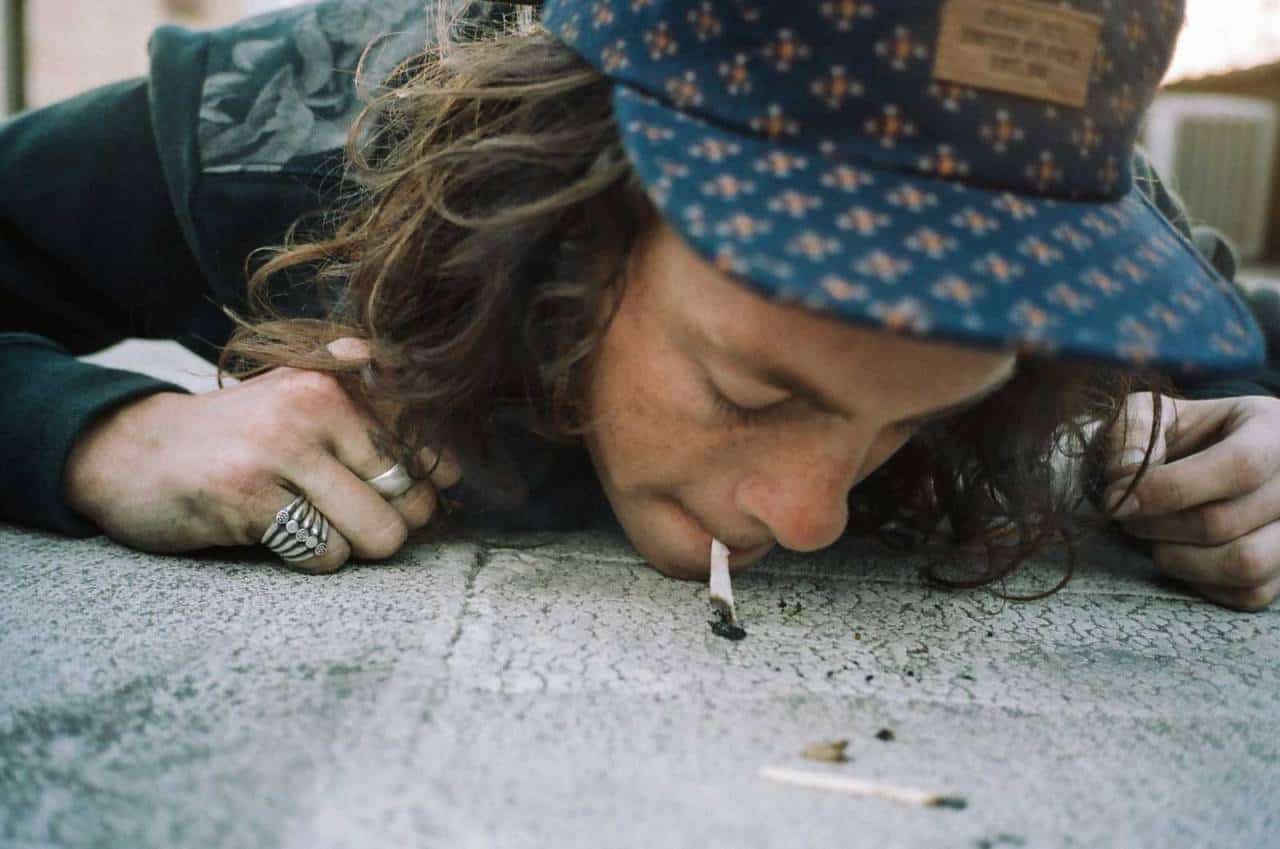
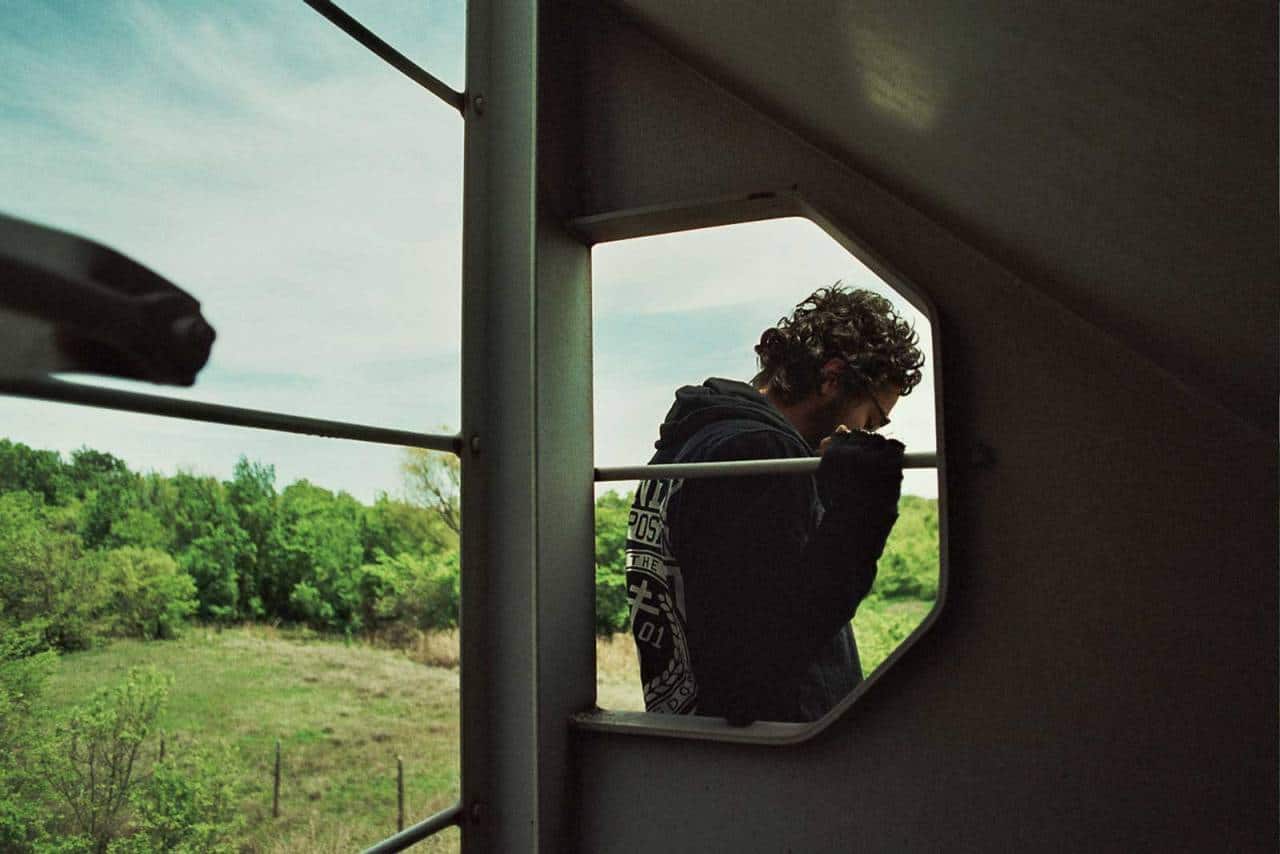
So the opportunity was a trip to go ride the rails across the country?
Yeah, mhmm, and I thought, “well shit, I should at least bring some film along.”
It wasn’t a photo opportunity as much as it was an adventure opportunity.
Yeah, it was an adventure opportunity, and for me, that’s where my photography comes from anyway, because I didn’t start out saying I was going to take photos, I started out going on adventures by myself and photography was the only way that I could share that with people without fucking inviting people along, which was not ideal.
Yeah, people are gross!
I shoot my best stuff when I’m alone. Like The Vans Vision Walk in New Orleans, I took less than six photos on that six hour tour. I operate really well on my own pace, so that’s, I guess, when I started considering myself a photographer. And then it happened again two years ago when I was like, “alright, if you’re a photographer, you’ve gotta handle yourself like one,” and now I’m having my third time of going through that. Which is cool because they’re different steps up.
Right, they’re each like, “oh this is the next step up.”
Yeah, the first time was like, “bring extra rolls of film,” and the second time was like, “oh, okay, build an archive, make a zine.” And now it’s all these other things.
Yeah. What is it this time?
Well one of the things, a good friend of mine has a publishing company and knows a lot about art and photography, we went to dinner two nights ago and he was like, “you have to make your website look like Magnum.” I like my website being overwhelming and just being an immersive environment, and it’s really finicky, and just shitty coded Tumblr site, but he’s right. If I want to be at Magnum, I have to present Magnum work.
Right.
Even if it’s amateur Magnum work. So that’s one of the things, and then trying to get a photo agent that sees that vision, too. Most of the people that I interact with are like, “you should be shooting commercial jobs, you’d do so well and make so much money,” and I’m like, “that sounds miserable,” even just thinking about it.
Mmhm.
But I’d like to do that, too, you know. While I’m here in LA. After 12 years of resisting it, I’m just ready to stop saying no to everything.
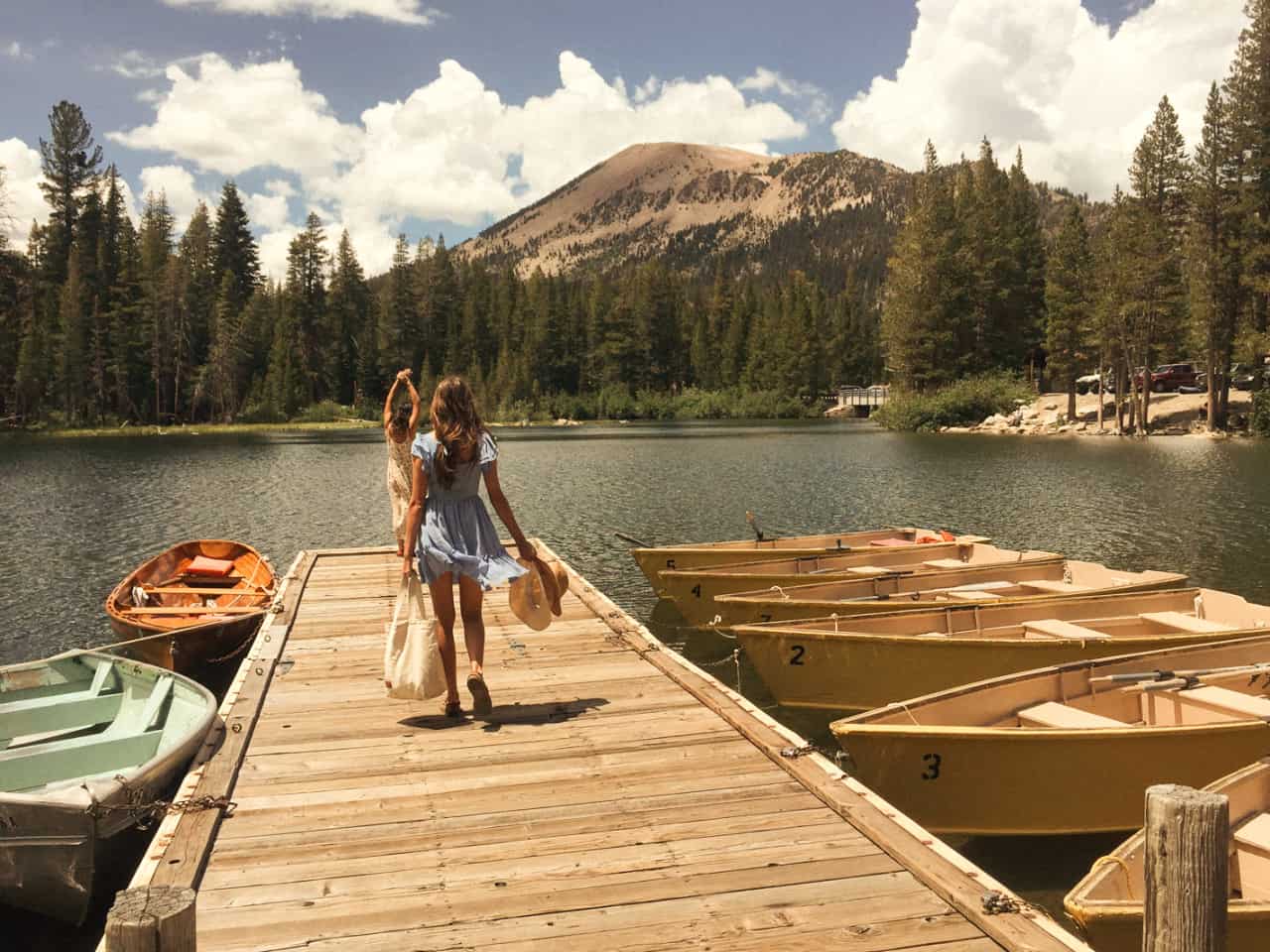
Which photojournalists do you…?
Phew, so many. I love Joseph Gadelfa, Robert Frank. Helen Levitt, Diane Arbus, a lot of the obvious ones, and then Justine Kurland, do you know Justine Kurland?
Nuh-uh.
Oh my god, finding out that she existed destroyed me because, this is like a year ago, it was the day that I came out with my zine that I felt like, “oh my god, here, this is like a living portfolio for me, or at least about some of my work,” and the day I released it, after the book fair, I went to Hennessey + Ingalls bookstore, and was looking at art books and came across this book that was shot in modern day, and not only were some of the exact same people that I shot in there, but also places, and she’s like a little bit older than me, and she shot a lot of these photos by traveling alone in her van and throughout the US, it’s a lot of train stuff, literally the same people that I’ve lived with in these weird obscure places, that no one else knows. And it’s beautiful work, she shot a lot of it on, I think, medium and large format. But she’s enough older than me that it’s like, I’m not mad about that.
Right.
I’m just kind of like, fuck!
“Oh, this is possible.”
Yeah, this is possible, but I’m also already there, but now what do I do, I don’t want to know about it, it’s so close, you know.
Haha, yeah.
Because I didn’t really study any other photographers, it’s only in the last year or two that I started looking at other people’s work, so I never really knew what I liked, what I didn’t like, who I wanted to you know, borrow.
Emulate.
Yeah, emulate or whatever, I was just doing me, and now I’m trying to do me minus knowing that she exists.
Haha, right. I feel like, if you’re as much yourself as possible, it doesn’t matter if everybody’s shooting the same thing, it will look different. That’s the idea behind the Vision Walks, is you get these photographers and they all have their distinct styles, and the same subjects will look different.
Yeah, and I guess with someone like Mike Brodie or Justine Kurland, at least in regard to train stuff, for me, I don’t really shoot a lot of it, it’s really a personal experience for me, and the photos are not…the ones that I take are really not good, and I don’t share them much because I’m so close to being ousted from that community that I don’t want it to be something that I…
Why are you close to being ousted?
Well, you know, to start riding trains is like a privileged 26 year-old, like that lives in LA and has a house, it’s just not really…
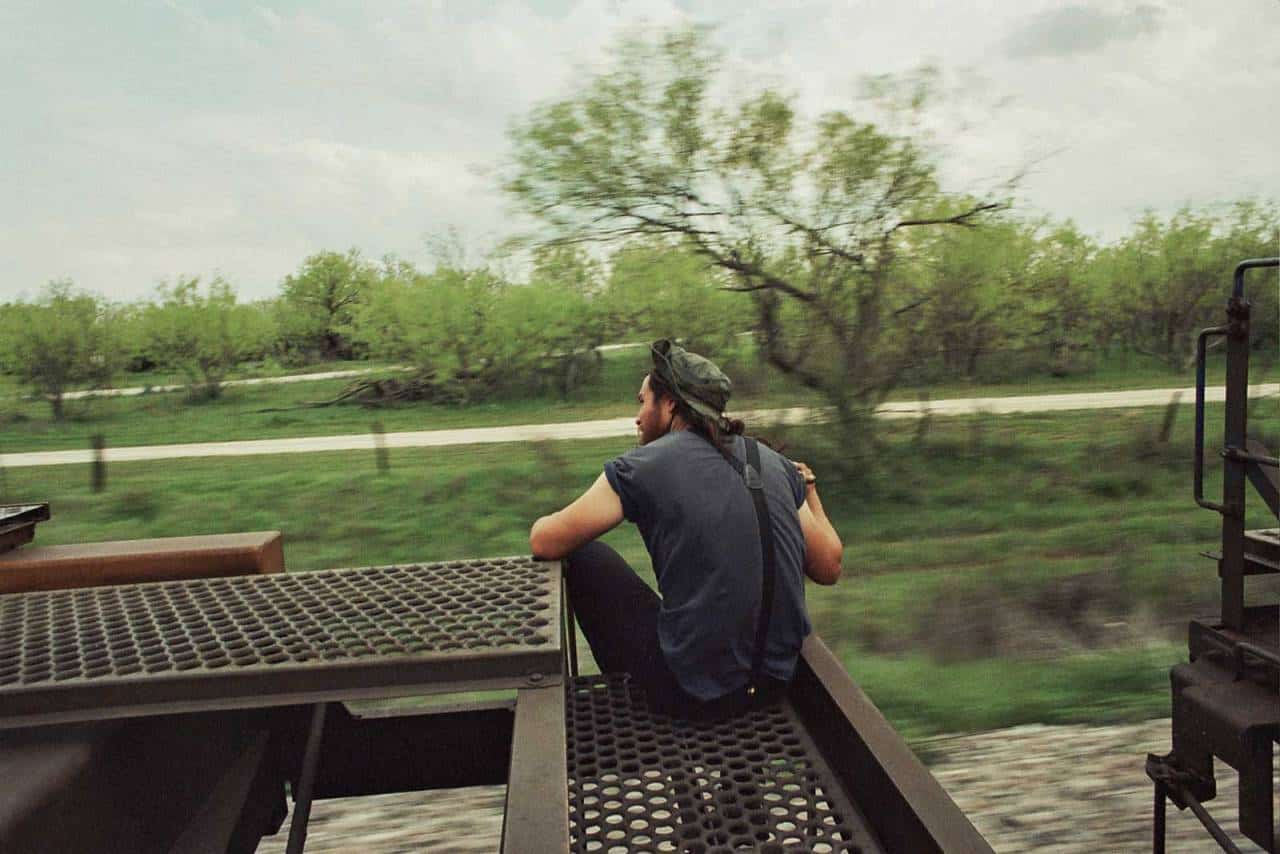
You’re an outsider to them.
I’m an outsider, and the first time I ever did it, like, news people were emailing me while we were still on the trip. Vice wanted to…so many people wanting interviews and videos, and it was like, “wow, if I do that, I’m sharing, I’m opening up a window to a world that doesn’t want windows.”
Why do you feel you were getting all of that attention?
Because I was a girl doing it and I was posting it on Instagram. And not just a girl doing it, there’s a lot of women who do it, but I’m like a clean city slicker.
Haha, right.
I’m not, really, but comparatively, you know, and a lot of people, especially in the beginning, in the early days of riding trains, did it because it’s free travel and they were looking for work. And here, I have the opportunity to get arrested and pay my bail.
Yeah.
So I just wanted to share it only from a perspective of me and this is my experience, not like, this is a window to the world, I’m claiming to be this or that, I really try to avoid that. But Mike Brodie’s work is just fucking phenomenal, so I’m fine with just keeping my photos as personal and bad.
People don’t really know it about me, but I have two very different lives. Like my ex-boyfriend, we went on a trip to Europe together.
Yeah. And all of our travel and time together was like not City Slicker Molly, it was like…
Florida Molly.
Somewhere between Florida and Oogles.
Oogles?
Oh my god, an oogle is, like, a derogatory term for a dirty punk that has a dog and smells really bad and drinks malt liquor and rides trains! HA!
And listens to grimy crust punk. I mean, it’s like totally real, I don’t want to call it an epidemic, but part of the population.
I mean, I’ve seen them!
Yeah, but I have that. When I come back here (to Los Angeles), it’s like I’m a caricature suddenly in the city, but I do have another life.
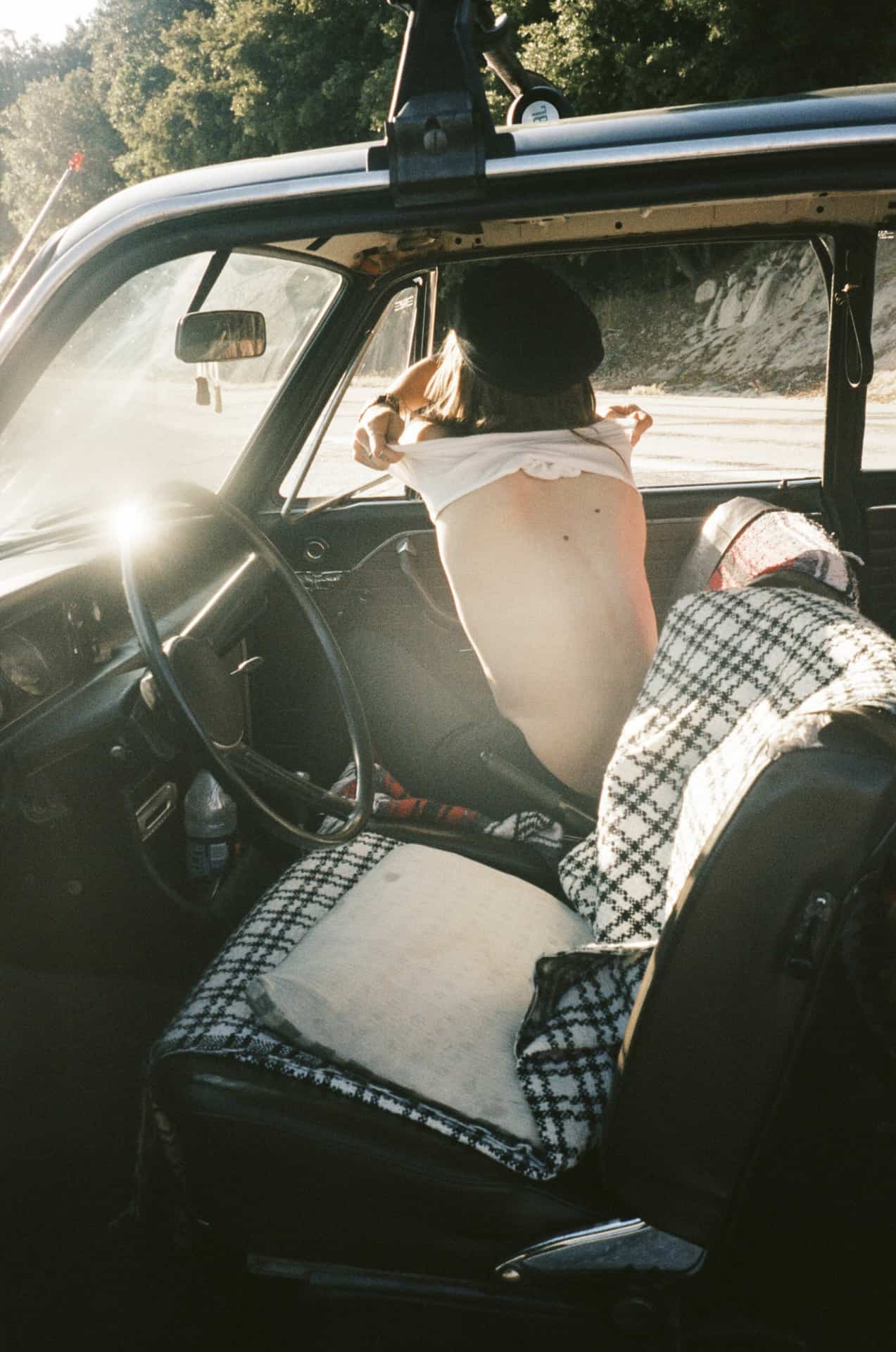
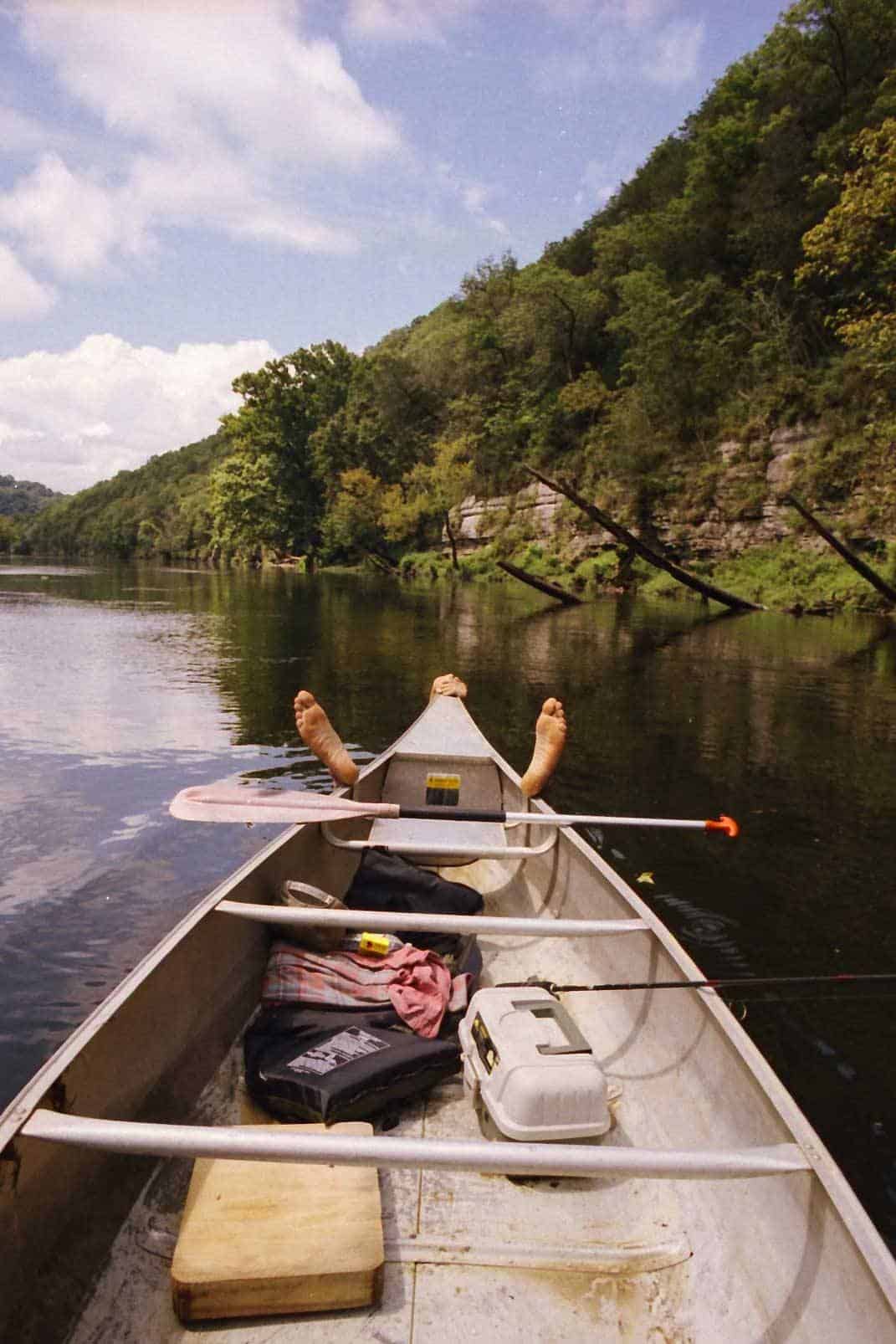
How did Molly from Florida also end up LA Molly?
Well, that part is an easier question because I grew up so isolated down long dirt roads and on a farm, often times the houses that we lived in, we were living in someone’s garage. So I grew up closer to where my friend zone is now, if that makes sense. I grew up admiring kids who rode trains, because Gainesville has such a rich and vivid punk scene and crust punk scene, a lot of kids who ride trains live there. But I lived thirty miles away without a car, and so this was just something I thought of and I never really thought was going to be me.
You looked up to those kids.
Yeah, but at the same time, I grew up really isolated and I didn’t have a lot of opportunity and my mom’s not feminine at all, we didn’t have a great relationship, so I spent middle school and high school deciding that I was going to be girly and that I was going to be a model, even though that wasn’t me. I just wanted to be so different from everything that I saw around me.
So I started coming out here (to Los Angeles) when I was 15, and modeled and moved here doing that, and then I thought, I want to be prosperous and I want to have opportunities that I didn’t have and that my family didn’t have, and I want to have nice things and I don’t want to have financial insecurity. And then that wasn’t fulfilling. But I still have that, like yesterday I woke up, went to a photo shoot that I was modeling for, went and picked up a dress that some brand gave me, which is super-beautiful, and then I changed out of the dress and went to the nastiest punk show.
That’s my day, every day. Flowing in between all these weird spaces, and trying to find how I can do that in a way that’s beneficial to both, carrying the messages between the worlds, that’s what I feel like my role is.
I’ve really, sometimes separated, or sometimes just distanced myself from most of the life that I’ve built here over the past twelve years. I don’t really know how to shoot the shit at a fucking free oyster party with people who are talking about some business that they started where they make gift bags or whatever.
Right.
I can’t pretend anymore.
Was there a point where that came into stark relief for you?
Yeah, actually. I lived in Atlanta for two months with a huge collective of people that are all really young, the most politicized, well read, radical kids that I know, and then I came back after two months, and two days later was invited to the top of Hotel Covell. It was the announcement of a new florist business, and there was free oysters and wine, and everyone’s wearing whatever fucking clothes that I don’t care about and can’t afford, and I had forty-five minutes of free oysters, and then I left, and I was like, “I can’t do this anymore. LA is so liberal and complacent, and we just perpetuate it by spending time in those spaces, and I just don’t want to be a part of that anymore. Except for if it benefits my career, haha!
“Unless you’re willing to pay me.”
I’ll take your oysters and your checks and your dresses, but just know that I’m doing it from a different perspective. Joking!
If you could have whatever kind of career you wanted, what would that entail?
Actually, I don’t really remember too many of the details of her life, but Joan Didion has a really interesting career. In her early days, she has always been fairly private, but she also was kind of a party animal, or at least hosted the coolest of the cool at her house in Laurel Canyon. But also was writing for all the chic publications, like Vogue, didn’t she pretty much write for every amazing literary magazine, she worked for The New Yorker.
And yet, had this kind of grungier side. But she was wealthy, and super-successful, and very classy. So somewhere between that, and I don’t know, I guess I don’t really know the personal lives of a lot of the other photojournalists, I mean photojournalists that I look up to, but somewhere in that. Where my main priorities would be integrity, to not have financial insecurity, and to always be hired for jobs where people only want what I do.
And not have me assimilate to a mood board or something. I think I can have that, I just, I have to let myself do it.
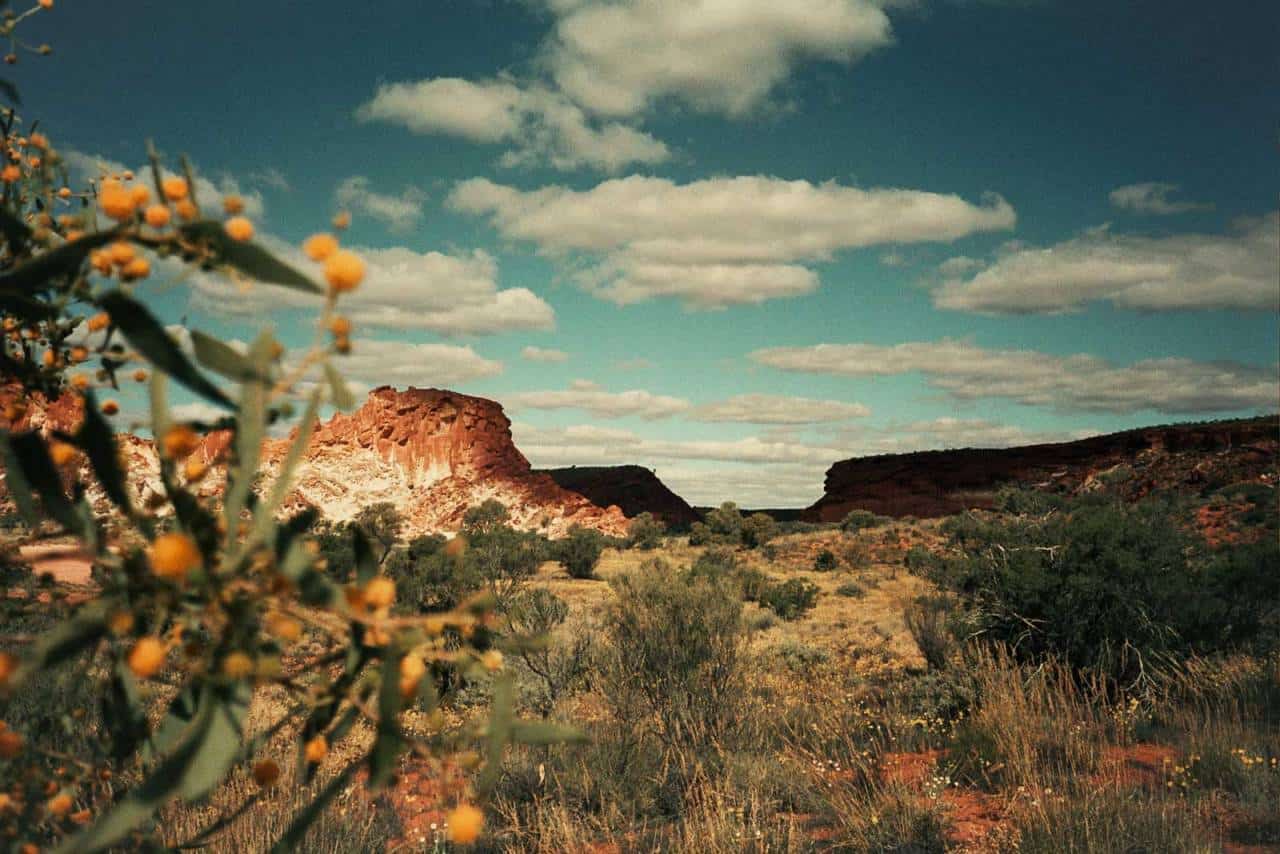
What part is stopping you from doing it?
This feeling of kind of…not thinking that I’m good enough, or thinking that I don’t know anything about photography, which is often one of my biggest crippling experiences every day is like, “oh, but I don’t really know what I’m doing, so why are they coming to me?”
Mmm. Impostor Syndrome?
Yeah, yeah. And so trying to really accept, and that’s part of what this third chapter for me, this third step; I do know what I’m doing, there’s a lot for me to learn, I don’t have to think of it as I don’t know these things, I can think, “I can learn these things.” So just changing the tone.
And being better at editing my work, not editing each photo. I think I maybe should learn how to make series. I mean, there’s also that thing of like, am I setting out to try and take certain types of photos, or am I just doing the trip and whatever happens, happens. And that’s usually what I do, the latter. But I’d like to try and be more intentional sometimes, just to see what that’s like. Now that I know the things that I like to shoot, and that I like to experience, I can seek those out.
Right.
But I want to do something that’s more important than just what I like, you know.
In what way?
I don’t know. I’m never going to be a war photographer…
Why not?
I’m way too scared. There’s so many, gosh, what’s his name, I barely know him, but Corey Richards, he’s a National Geographic photographer, and he was sending me these photos that he shot in Pakistan, because he’s a mountain climber, a mountaineer, also, and he shares these shacks with these rebel war fighters in Pakistan with a massive language barrier and has access to these things that we’d never see without work like that.
We live in such a camera frenzied time and camera conscious time that there’s not a lot of no-camera places these days. But those are the places I want to go.
The places that are “no camera” places?
Yeah, so a lot of the relationships that I build with people sometimes I build over months and years before being like, “hey can I take some photos of you?” And no one’s ever said no if they’re people that I’ve spent time with.
Right, already built the relationship.
Mhmm.
Does the…because I would be afraid of traveling alone. I am afraid of traveling alone. Is that something that is always on your mind when you’re traveling in these spaces?
Yeah, yeah it is.
But it doesn’t stop you?
No, because…I don’t really know how to put this in a way that other people relate to, but I think probably everybody experiences this in some way, feeling debilitated by something, whether it’s, “I don’t want to get into a relationship with someone that’s a drug addict,” or “I don’t travel overseas because I’m afraid of not knowing the language” or whatever, or maybe you just don’t do it. A lot of people of older generations that have just never left the country because they’re just like, why, you know. And for me, I wouldn’t be me unless I pushed up against my fear, because here’s me, and here’s all of the things that I want in my life, and then there’s this massive border wall of fear. And I’m not me unless I cross that.
Do you feel like the fear is ever-present?
Mhmm.
In all things?
Yeah, yeah. One of the biggest ones being talking. That’s one of the reasons why I’m so bad at interviews, I really have a hard time talking to people, especially if I don’t know them. And I’ve actively worked to get better at that, and I have gotten better at it, but think about when you’re traveling and you’re photographing people that you don’t know, I mean, Akasha (Rabut), she tries to build a relationship with somebody really quickly, I’m not good at building a relationship with somebody really quickly. And so there’s that choice, do I build this relationship and hopefully get a photo, or do I just take it without asking and move on, and maybe not get a very intimate photo. Or get the photo that I could have gotten. So that fear is in the social aspect of it, and maybe the “oh I saw that shot and I kept driving, I don’t want to bother turning around,” whatever it is. Or like not wanting to get my face punched in. Or my camera smashed.
Right.
Like in a demonstration, for example, people in the streets, if there’s any black bloc, what a beautiful vision, but also super-high likelihood of getting your camera smashed. There’s this zine called, I think it’s called Smashing Cameras, or Smashing Lenses, or whatever, and I’m, I fully agree with it, and yet I’m a photographer. So that “taking risk” thing is really present in a lot of stuff that I like to shoot.
But it’s not about adreneline as much as just feeling like you’re accomplishing, overcoming your fear.
Yeah, overcoming a fear, and that fear also being that if I choose to be a photographer in this moment, this might close the door to knowing these people in a deeper way that I would want. Because we go to things that are intriguing to us. We shoot things that are interesting to us, so what happens if we shoot something and that closes a door to this thing that we wanted access to, on a personal level. And that, I experience all the time.
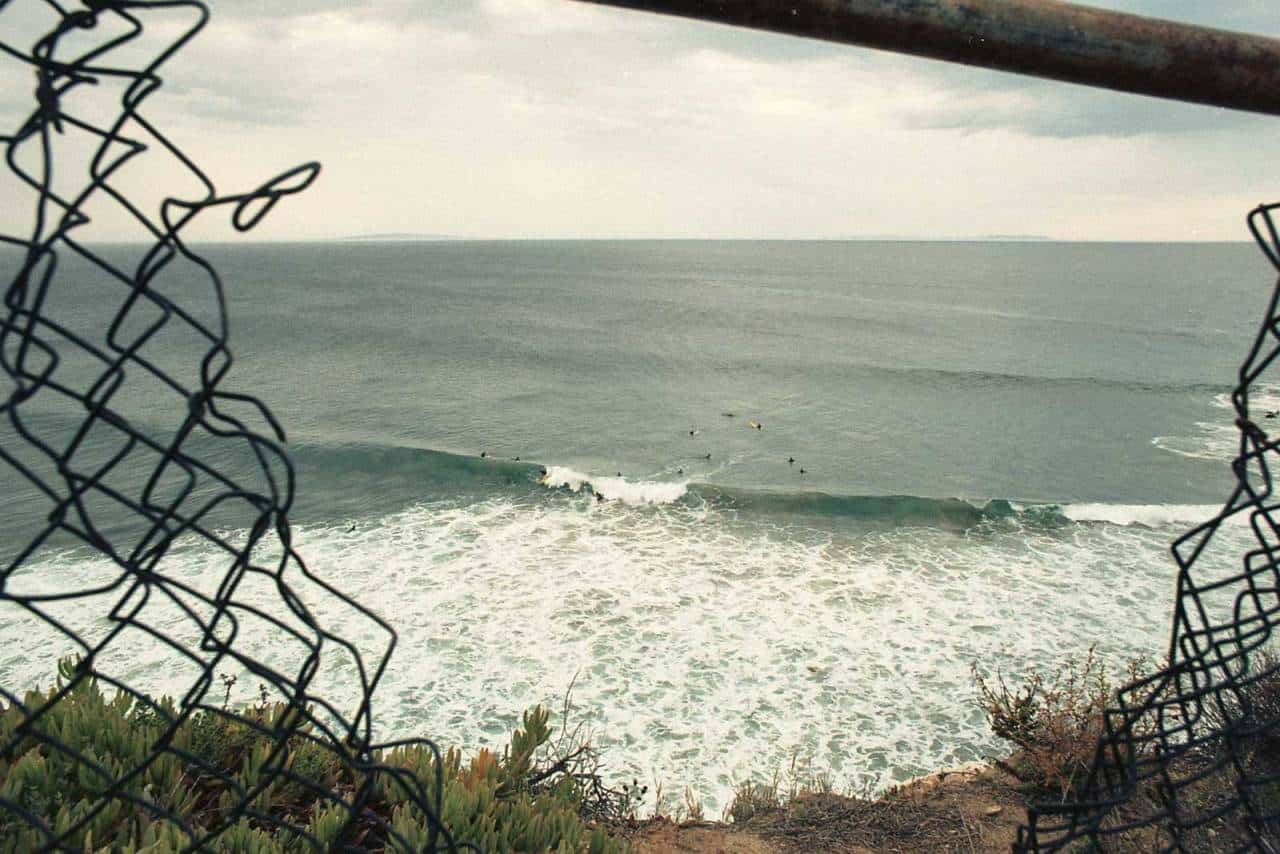
What’s the decision you tend to make?
I don’t take the photo, yeah. There’s most of the things that I would want to shoot I haven’t because…
The camera’s not welcome there?
Yeah, and the friendships that I make are the ones that have replaced my life in LA, you know. Suddenly finding people that seem to be speaking the same language as you and not wanting to fuck that up. So it’s tricky. I like what Olivia (Bee) does, when she was younger her friends were cool with her taking photos of anything and everything. I’m so, like, “oh I don’t want to ask to take the photo,” I don’t want to make someone feel uncomfortable and then get reprimanded. And I’m really working against that right now.
There’s trust, like they know that you’re not going to hurt them with the photos.
Right. That’s what I’m trying to learn, that’s the part of the academic thing that I was talking about, that it’s more than just a photo, I want to learn and avoid all the many ways that you can hurt someone with a photo.
Mmm.
There’s that book that I haven’t read that I talked about in my livestream called The Journalist and the Murderer, and I don’t remember what happened, I read it a little bit, but the journalist that got really close to this murderer, I think over the course of the trial, in the end somehow really fucked it up, not intentionally, like really fucked this person up.
Right.
The many ways that a photo can be exploitative without your intention.
Sure. How you portray the people, how that reflects on them, is it something they want to be seen, is it something, is it celebratory of a lifestyle that maybe shouldn’t be, yeah.
Or, in a political space, for example, if you’re photographing, let’s say I’m taking up Olivia’s style where I’m photographing my friends casually hanging out together, well, unfortunately, if I’m doing that in a political space, I’m documenting certain people in the same place that can be used as evidence that these people know each other.
Right. Yeah, the photos you’re taking, that’s something I thought about like, riding the rails, there’s another reason they wouldn’t want to be photographed is because you’re photographing them committing crimes.
Right, yeah! And you know, a lot of times, you’re creating evidence before a crime has been committed, you know. Like, this puts this person there, and it puts them next to this other person, and we didn’t know that those people were associated but now we have this photo to show that they are. And we know that you were involved, so let’s say you get a grand jury subpoena, and you have fucking, you’ve done it, especially if it’s like, now there’s a negative, and there’s digital somewhere out there, even just on a computer, you know. I don’t know how to be in that space as a photographer, it’s really tricky.
A lot of landmines.
Yeah, so I kind of have to figure out, well what’s my work if that’s not going to be it, you know. And that’s where I think I get a little lost.
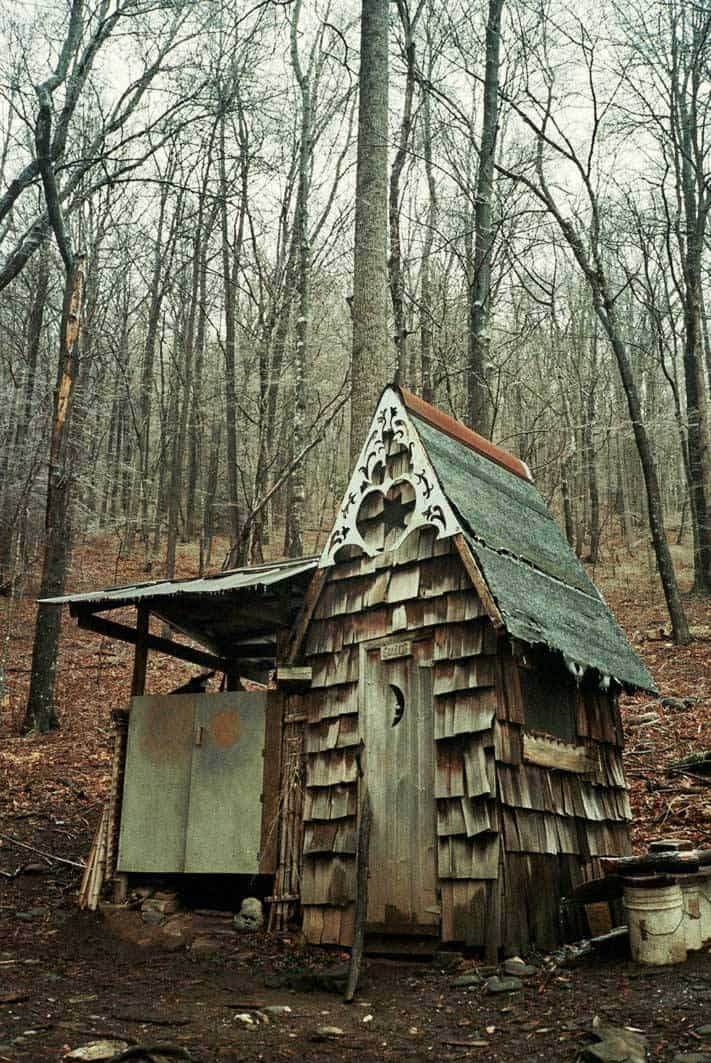
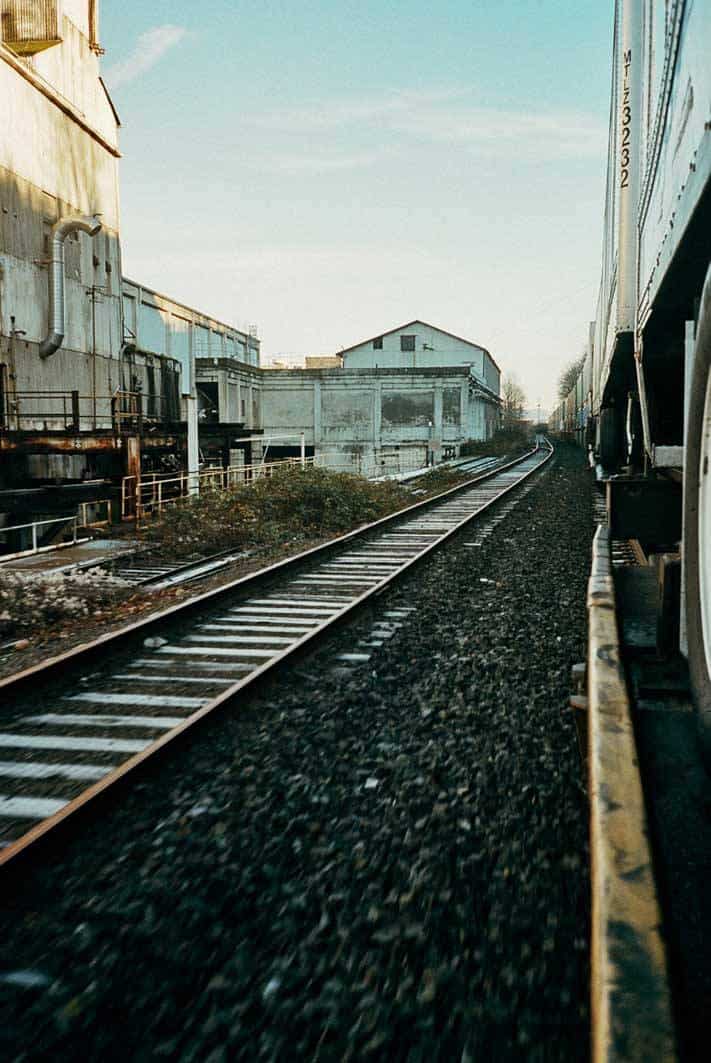
How would you describe your work?
Pretty intimate and, thus far, kind of voyeuristic, because a lot of times I’m not photographing the things right in front of me but passing through, especially if I’m alone. Kind of like Saul Leiter has stuff like that…yeah, tricky one, but his stuff feels really private, he’s on the outside looking in, and so I feel like I have a lot of that and also somehow a lot of emotive stuff, without it necessarily being an emotive experience. It’s an emotive experience, for me, but maybe the photo’s not. I think part of that is shooting on a 50mm.
Why?
Because there’s nothing grand about it.
Too tight?
Yeah, but I like that. Years ago I was really good friends with this guy, before I was a photographer, but taking photos, I was friends with my friend Liam, who is also a photographer, and he used…probably a 35mm or something, and he had just the most beautiful grand shots, like vistas and whatnot, and mine were all as if you were right there on the trail, and the photo makes you feel like that, too. I really liked that. And then I started playing around with something wider, and now I’m back to 50 because it feels private and personal.
And I just don’t like the distortion, now I’m shooting a lot more people, I used to never shoot any people back then, and it just looks funny, to me.
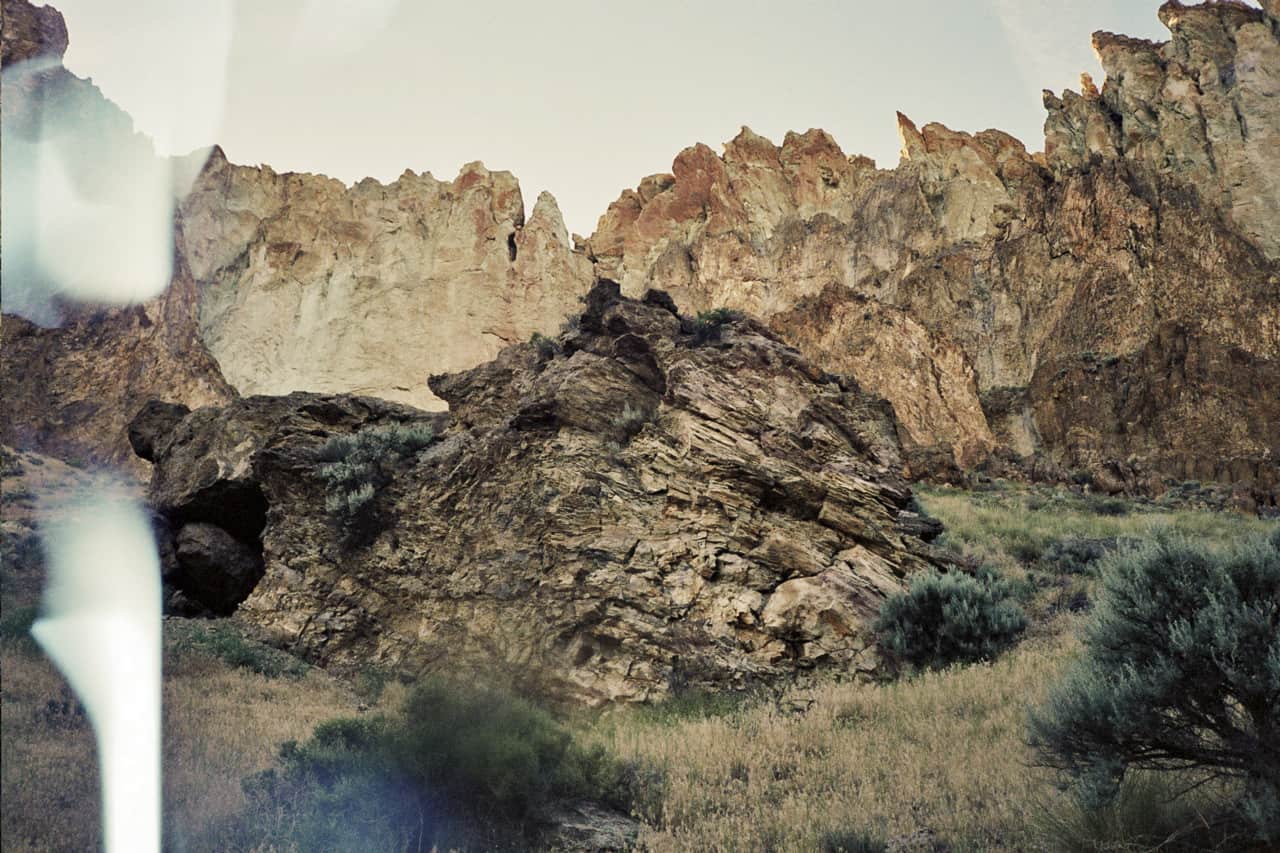
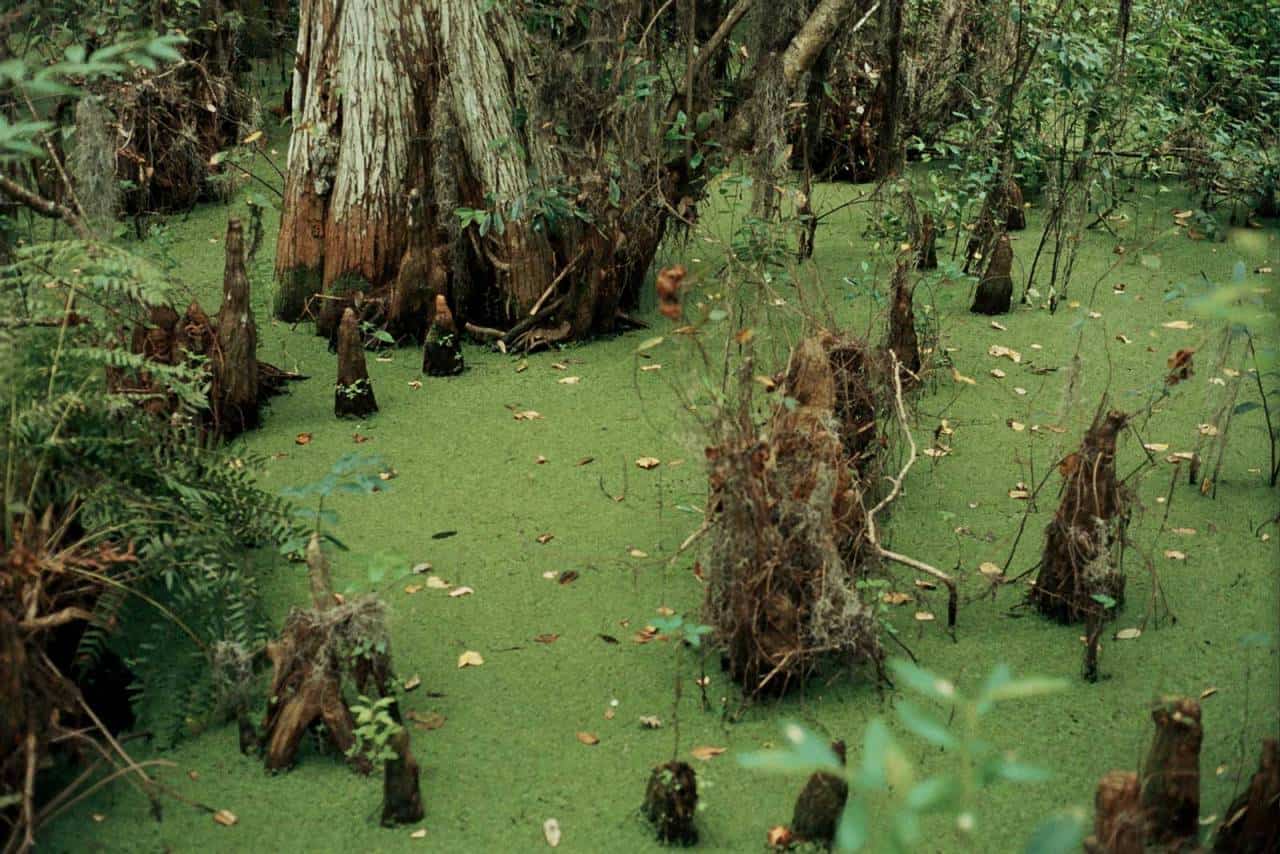
What is it you look for when you’re shooting people?
I really don’t want to feel any camera consciousness. I do not want my presence to impact the photo. I love that Vivian Meier has that effect because of her height and her presence, but I don’t want to interrupt a moment. So something that’s natural and where you really just feel like you’re witnessing something. I will never be taking sexy photos of girls unless it’s private around the house or something. Because it’s just too…direct? I’m never going to be someone who’s directing, I don’t feel like I’m ever going to be a person who’s setting up shots.
I kind of wish I could do that, but I don’t think of it, because I only take photos if I feel it.
How do you generate that for yourself when you’re doing commissioned work?
Yeah, that’s hard. You know, luckily I haven’t done much, luckily and thank god.
Thank god!
Thank god I haven’t made a bunch of money! No, but I don’t do a lot of commissioned work because of that. Because I don’t know how to, I don’t know how to fake it, but when I did that Tom’s job recently, it was cool because I think, honestly, what made it for me was the casting. Everyone that they cast looked like people I would find in my life and so I didn’t really have to try that much, it was more just about capturing these people as I would want to capture my friends. But once I go deeper into a commercial space and I have to make something out of bullshit…
Ha!
Yeah, that’s a really tricky one that I’m intimidated by. But that I can totally figure out.
Even with that job, for the three weeks up to it I was borderline puking every moment because I was so nervous, and how am I going to do this, and I had to keep calling my friends to validate me to say that I deserved it and that I could do it. And I knew that after, that I would feel good. I knew that I could do it, I just was so intimidated by this first time selling a product with a massive, it’s a huge campaign, you know, but I pulled it off. So now I have it under my belt and I know that I can at least kind of pull it off next time.
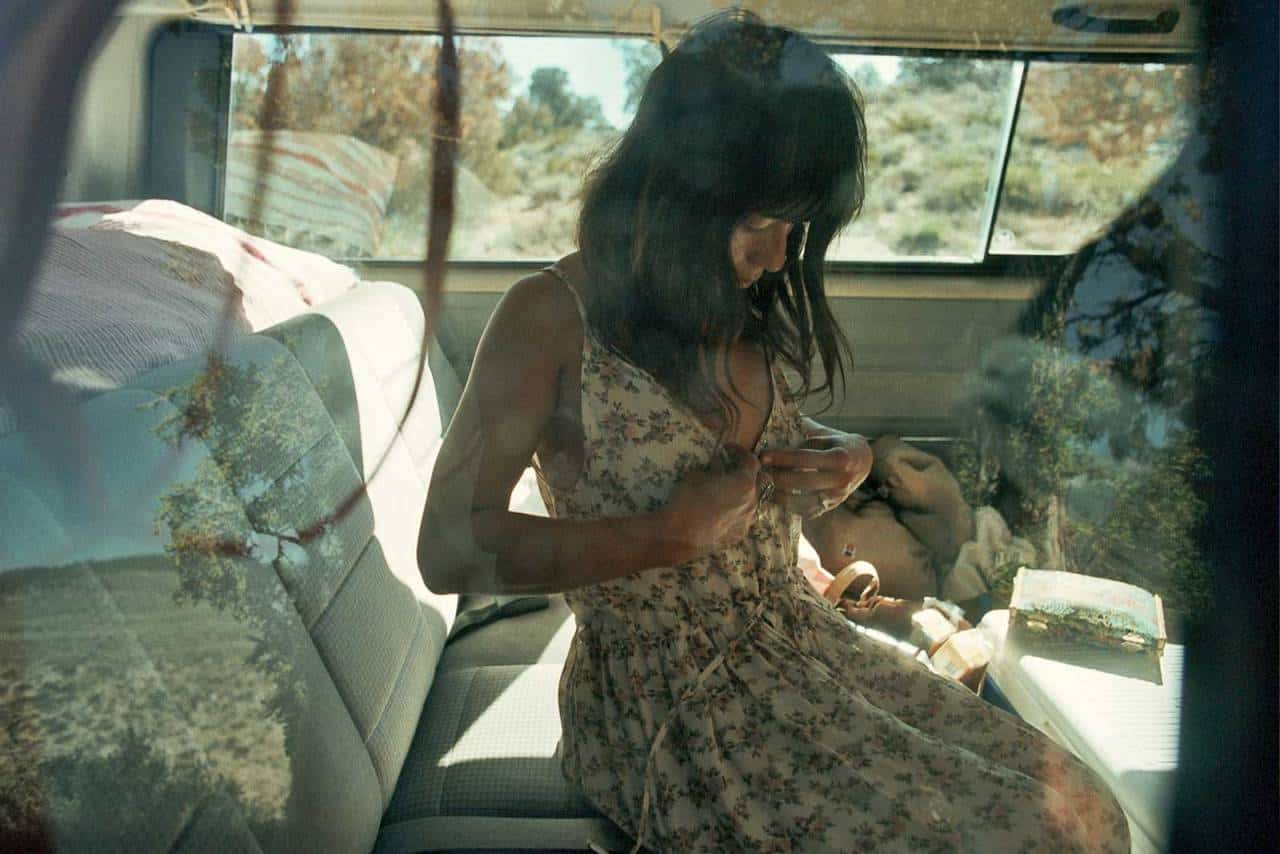
Haha, “kind of.”
Yeah. But even after, I was writing the clients like, “I can’t tell, did you really like it, I shouldn’t have been doing it, but did everyone love it?” And it also really helped that I told them in advance, “I really appreciate you taking a chance on me, you know that I don’t, this isn’t really what I do and I’ve never shot digital before,” and they were like, “yeah yeah. we know,” and I’m like, “well great.” That made me feel more at ease. Because we all knew that we didn’t know what we were going to get. So yeah.
The second step of becoming a photographer for me was deciding that I was going to get closer to all of my friends who are photographers. So that way, even if it’s just a casual conversation or hanging out, I’m having access to more exposure of what I’m doing, and in my last relationship I got scolded for talking about myself a lot when we were out to people, but I’ve never been able to do that before, and now I know how because I feel proud of what I’m doing for the first time.
Confidence.
Yeah, and lot of my interviews were before I was a Photographer, you know, and reading those is just such a different time for me. And then I did an interview for Mask Magazine last year that I really took the time with, and those “long-winded” answers made me understand something more about what I’m doing. So I like that process, but I just didn’t know what I was doing, and I wasn’t politicized yet, which I think is such a big part of my work now. Even if it’s not overt.
It’s something that you’re thinking about when you’re shooting.
Yeah, most of the times when I get comments from people on Instagram or something, a direct message, it has to do with them being grateful for giving them access to something that they wouldn’t have known about. So I want to keep getting in there.
To what would you attribute your internet success?
When I was a teenager, I had a very popular LiveJournal, and so a lot of people that follow me now have been following me since I was like 14, yeah, it’s weird. I get emails sometimes where like, “I’ve been with you since the LiveJournal days.” I wasn’t a photographer back then, Myspace was like all just like me.
Haha!
But I lived in the middle of no where, I didn’t have a life outside of the internet, honestly. I started finding people and things that were interesting to me, on the internet, that I would have never seen or heard about where I grew up. And once Instagram came around, I was pretty late to Instagram, but once it came around, I found that same experience again, and then when I started being a photographer, I wanted to give that experience to other people, especially when I was doing mostly travel, nature stuff.
So many people that are working 9-5 or don’t have the finances to just let go and travel, even for a week, you know, were dedicatedly, back then I was like, really live-gramming, there was no later-gram, it was like “these are the things I’ve done all day today,” and sharing that with people who wouldn’t have seen those places or couldn’t see those places felt really nice to be able to give that, and that’s what made me want to be a better photographer, was being able to share things.
I think that that was the success, people wanting a window into the outdoors.
Do you think that people see you accurately, based on your internet presence?
I would hope so, but I don’t think so because of these two Mollys.
Heh.
And that’s kind of why I post IG stories that I know are shitty, like “this is a fucking bathing suit I modeled today,” because I really want people to understand that there’s more, a lot of people think that I’m the train girl, and that I’m just traveling in a van, but I live in Los Angeles and I have a house, and I go to events, you know. So I don’t think that people really get it. And I also don’t expect them to, because I’m doing things that are…such a small population do these things that I can’t expect anyone to really understand unless they’ve had that experience, too.

Have you’ve changed a lot over the past few years?
Oh yeah, yeah. I mean, I’m not a different person, but I’ve just blossomed. I’m more me than I’ve ever been. I really didn’t know who I was, like, 21-27. Which I think is probably pretty normal. But I dedicatedly tried to find out. I was talking to my ex two days ago, who’s just now starting to try and figure that out at 30.
I was like, “don’t be daunted by that, or don’t feel defeated about how much growth you would have to do to get to a certain place, be excited.”
Some people never do.
Yeah, some people never do, it’s too much work, it’s scary, or they don’t think about it. That was all I wanted to do was to figure out who I was.
Why?
Well, two reasons that are like totally unrelated to I guess photography.
My mom had me when she was 27, and my parents divorced three years later because my dad was eleven years older than my mom, so he’d actually already had another family, and you know, he knew who he was, and he knew what he wanted out of life, and my mom didn’t. She had a kid at 27, what a hard age. What a crazy time, from 27 to 30, just as an individual, let alone taking on two kids and a husband, but she essentially wanted to go find herself, she wanted to figure out who she was and my dad was like, “alright, well then I want a divorce, you either have to know that you want to be a part of this family or…” He was really one way or the other, gave her an ultimatum, and they got a divorce. I don’t think she ever found herself.
And then another reason, when I was 19 to 21, I had an amazing boyfriend. A person that I never thought I deserved, and still have never met anyone like him, and nothing was wrong with our relationship, but I couldn’t put my finger on it, I broke up with him while we still loved each other. I was just like, “there’s something, I feel like there’s things that I’m going to experience in my twenties that…this relationship just makes me want to get married and have kids, and I won’t experience those things.” So I just needed to figure out what I was doing. So I really had to make that worth it.
Because I broke up with a really great person. And now I’m glad, you know, even though I still think he’s great, like from 21 until now, I’ve done so many crazy things that I’m fucking grateful for.
Right.
Including the bad stuff, you know. So yeah, really trying to make it worth it to not make mistakes that are too big, like with my parents. Trying to make the right kind of mistakes and glean what I learn from that.
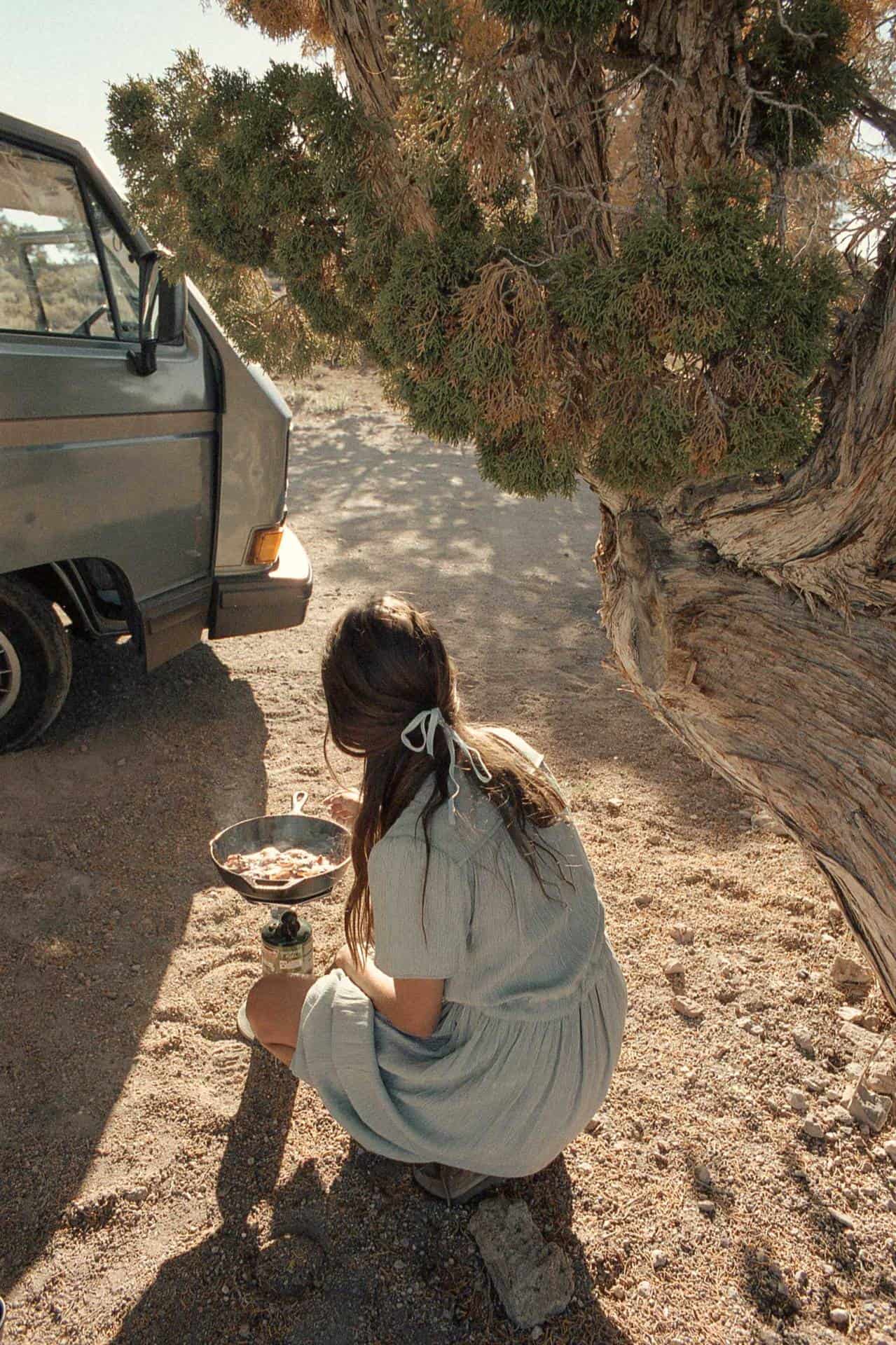
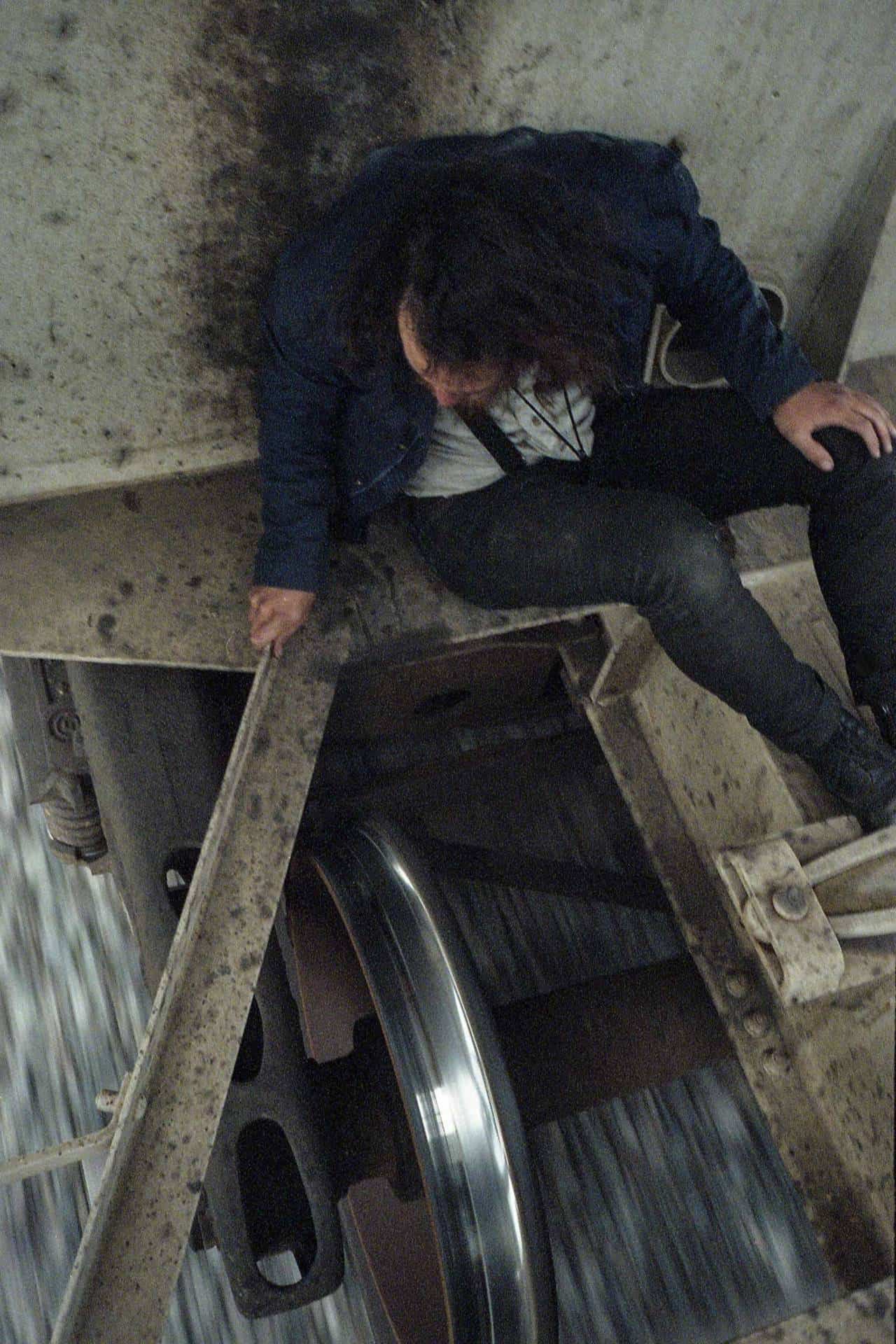
Which do you prefer: the process, or the result?
The result. Because I like editing. I’d love to be darkroom oriented, but right now my photos are often made by the editing process. So I really like it because I thought I was a fucking terrible photographer for years until I got Lightroom.
Haha!
And VSCO, where I’m like, “oh I can make something of this, it doesn’t just have to be face value the first shot, whatever ugly, bad exposure.”
There’s two main reasons why I shoot film. One, it’s because it takes so little of my focus away to take the picture, which is clearly most of what I’ve said is so important to me to be doing what I’m doing, and then the photo comes second in my priority. And then two, I was raised in a very manual labor family. Like, we grew our food, we made our medicine, we lived on a farm. When I bake, I use a hand mixer.
So I like having a hand in my life, for the most part, and digital just feels so far removed from the human experience. It’s kind of like going to the farmer’s market instead of a grocery store. Film is tactile. I like to load the film, I like to hear the shutter. I like to feel it being wound. I like my heavy brass Nikon. I don’t know, I will always be that way, digital, for me, is a tool for work.
Heh.
But I’d like to do night photography, and I’d like to get a better photo than I would on film. So it is a tool that I’m opening myself up to for the first time because now I’m a photographer.
The increased politicization you mentioned earlier…did Standing Rock have a lot to do with that?
I went there because I felt there was something that hit me one day where I was like, “okay, I’m going,” and I left a week later. I didn’t know anyone there, and I went alone, I drove thirty hours in my car by myself, I stayed for a month, and I shot two rolls of film, not even two, I shot one and a half rolls of film in a month and a half. Because once I got there, every single day, there were so many different ways to be there, so many different ways to interact with even just the issues that were happening. Most of the time it wasn’t about stopping a pipeline, there were so many other narratives that were taking place, and talk about feeling embarrassed to be a photographer, it was like a zoo. People walking around, can I take your picture, can you put the stuff on, like, and so it just made me not want to do that.
Yeah.
And the very last week I was there was when I took my first photos, because I had spent time with people for three weeks without them even knowing I was a photographer, and when they found out, they were like, “well you’re welcome to take some pictures around our camp,” and I had one week left to do it. But that was one of those situations where I’m like, “who am I, am I a participant, or am I an observer?”
And I don’t think I would want to look back on my life and feel like an observer, it’s fine that people do, but that’s not me.
